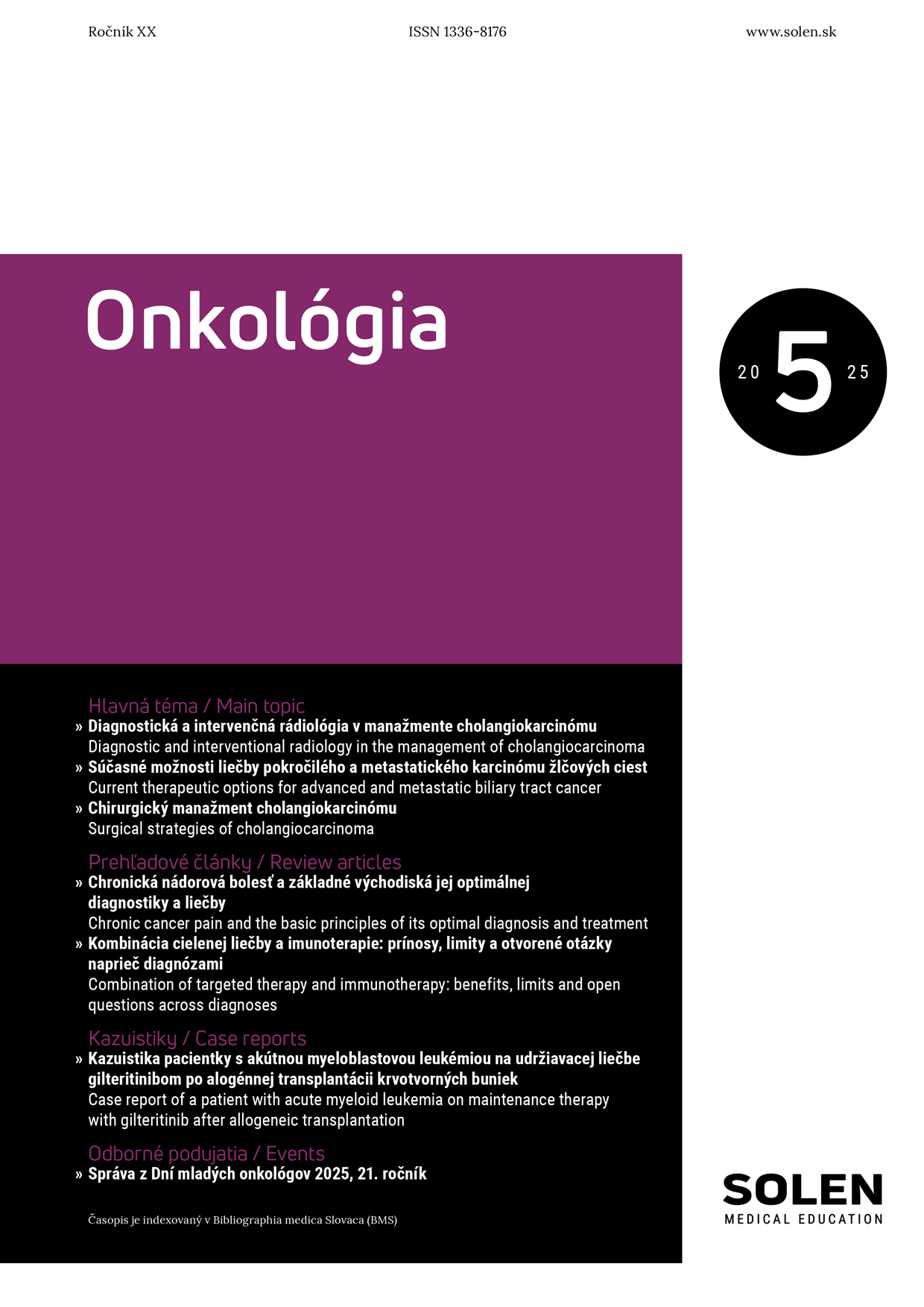Neurológia pre prax 4/2019
Nová éra léčby roztroušené sklerózy
Roztroušená skleróza je závažné neurologické onemocnění, které v případě neléčení vede k závažné invalidizaci nemocného. S příchodem moderní terapie v devadesátých letech minulého století vznikla určitá naděje na ovlivnění této nemoci. Ovšem poslední desetiletí přináší revoluční změny v její léčbě. Mimo léky, které je nutné užívat k ovlivnění onemocnění kontinuálně, je k dispozici specifická léčebná skupina, tzv. imunitní rekonstituční terapie (IRT), která umožnuje navození dlouhodobé remise nemoci bez nutnosti setrvalého užívání léčby. Nová vysoce účinná terapie mění pohled na cíle v terapii roztroušené sklerózy. Aktuálním cílem je dosažení dlouhodobé remise onemocnění, která je definována konceptem No Evidence of Disease Activity (NEDA).
Kľúčové slová: roztroušená skleróza, udržovací/eskalační terapie, imunitní rekonstituční terapie, no evidence of disease activity (NEDA)
A new era of multiple sclerosis treatment
Multiple sclerosis is very serious neurological disease. If not treated it causes severe disability of patients. New hope in treating MS arose in the nineties due to arrival of modern therapy. However only last couple decades have brought revolutionary changes in the treatment of this disease. Besides medicaments used continuously to affect the disease, we now have new specific therapeutic group called immune reconstitution therapy (IRT), which can induce long-term remission of the disease without continual treatment. New highly efficient therapy changes our views of goals in therapy of MS. Now our main goal is to achieve long-term remission of the disease, which is defined by the concept of No Evidence of Disease Activity (NEDA).
Keywords: multiple sclerosis,maintenance/escalation therapy, immune reconstitution therapy, no evidence of disease activity (NEDA)

















